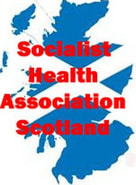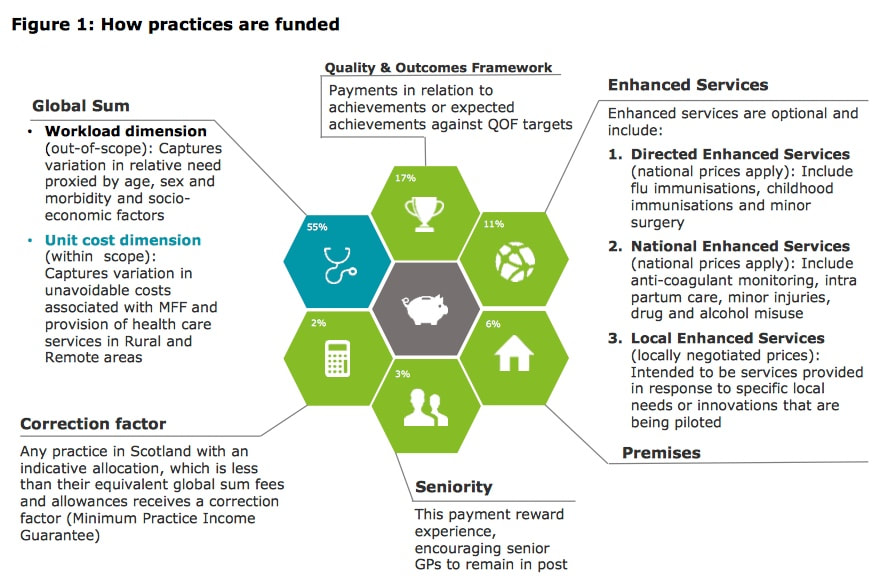This quote from the contract paper summarises the new role as:
“The future will see general practitioners in Scotland fulfilling roles supporting a wide range of clinical professionals, working as an expert medical generalist and senior clinical decision maker within multi-disciplinary community teams”
The major change is that GPs are paid to be GPs rather than to provide a wide range of other services. The proposed changes are also intended to reduce the transactional business elements of the relationship between GPs and the rest of the system. It is argued that these elements have, at times worked against the development of the collaborative relationships in health and social care necessary for good outcomes.
On pay, no GP should receive less than £80,430 (inclusive of pension contribution) for a whole-time post. It could be higher depending on how they benefit from the funding formula (deprivation etc). That formula phased out as other expenses paid directly
From 1 April 2020, it is proposed to:
• Introduce an income range that is comparable to that of consultants
• Directly reimburse practice expenses (staff and premises)
On out of hours services. Instead of the current opt-out arrangement a new opt-in Enhanced Service will be developed for those practices that choose to provide out of hours services. Health boards will be taking over leases of property, moving to a presumption that GPs will not own property, albeit over a 25-year period. Clinical IT systems will be selected only from ScotGov approved list by 2020. There will be a push for better data to understand health of local population.
GP clusters will be integrated into the planning process, with GPs having what is described as a clinical leadership role.
There will be greater use of other health care professionals without seeing GP. The paper states:
“New models of care will require other health professionals to be more involved in meeting immediate patient needs as part of a wider team (see chapter four for further details). Working alongside GPs, other health professionals need to be able to efficiently assess and treat patients, within their clinical competence. It will be essential that they are able to complete episodes of care without recourse to the GP on a significant number of occasions.”
The Scottish Government and SGPC have agreed that another area of GP workload that needs to be addressed is urgent unscheduled care including the provision of advanced practitioner resource as first response for home visits. Paramedics and specialist paramedics can practice in all aspects of urgent, unscheduled, and emergency presentations as needed
Additional professional roles will provide services for groups of patients with specific needs that can be delivered by clinicians other than GPs, serving as first point of contact in the practice setting as part of the wider multi-disciplinary team. These include (but are not limited to) physiotherapy services, community mental health services and community links worker services.
The introduction of the services described above relies on the establishment of a new workforce which will be part of practice teams, but not employed by practices. These practice-attached staff will be largely employed by NHS Boards, embedded in practice teams with their day-to-day work co-ordinated by the practice.
The new GP contract is the start of journey that will significantly change the traditional GP contractor model. While GPs will, in the main, remain independent contractors, there will be much greater integration. Payments will primarily be for their own time with other costs being directly reimbursed by the NHS and supporting services employed directly by health boards.
This probably isn’t the radical shift to direct employment that we might wish to see, but it is significant progress in that direction. It remains to be seen if it encourages more doctors to work in general practice as the government hopes.


 RSS Feed
RSS Feed